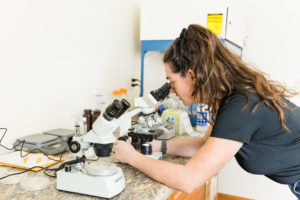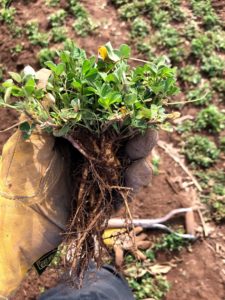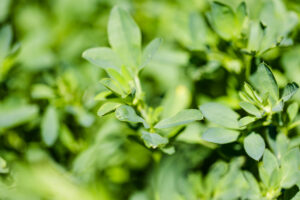Protecting the Soil While Being Profitable: Why Alfalfa is the Perfect Continuous Cover
March 19, 2024
When corn and soybean farmers think of protecting their soil from erosion and nutrient loss, cover crops are likely one of the first options that come to mind.
But a recent study by the University of Minnesota (UMN) found that continuous living crops not only provide the same environmental benefits, they also increase farm net return. Alfalfa is one of the best continuous living crops because it’s often more profitable than corn and soybeans, has a high protein content, and does not require synthetic nitrogen. There’s also the potential for increased demand due to growing and new markets, like pasture-raised beef and alternative protein.
“The benefits of alfalfa have become so normalized that it’s kind of easy to forget how powerful this crop actually is,” says Olivia Steinmetz, Legacy Seeds Alfalfa Breeding Research Director. “It’s kind of the best of both worlds. Because what it’s doing underground, having that continuous living cover with a really deep root system, is very good for the environment. But you harvest it, so you’re not really sacrificing anything.”

Reaping More Benefits with Alfalfa Roots
Alfalfa’s deep root system in particular is a great benefit for soils. The UMN study points out that perennials’ root systems can stabilize soil, improve soil structure, enhance water infiltration, and improve the soil’s water-holding capacity.
But alfalfa is also capable of developing a highly branched root system, a trait that two Legacy Seeds alfalfa varieties already have, including our newest variety L46-08.
A highly branched root system means that the alfalfa has more root surface, so the root system is going both vertically and laterally through the soil.
“The branch-rooted type alfalfa is going to be better prepared for different environmental pressures,” Olivia says. “With more roots, they’re more able to soak in nutrients. There’s potential for greater carbon sequestration. And more little roots breaking up the soil and creating passageways is only going to benefit your future crops as well.”
Legacy Seeds is also working on developing varieties that display a creeping root system, which Olivia says could be very beneficial in pasture settings, potentially mixed with grass.

Consistent Quality Every Time
To fully capture all of the advantages of alfalfa, a grower needs a consistent, reliable stand. That’s why every Legacy Seeds alfalfa variety has to meet our breeding program’s three pillars of yield, quality, and persistence.
That means it not only survives multiple winters, but it continues yielding well after many harvests. And it can only achieve those goalsif it’s healthy and protected from various diseases, which is why we’ll be releasing material that is resistant to the latest race of Anthracnose: Race 5.
Legacy Seeds’ breeding approach is based on patience. From development in the greenhouse to multiple winters in field trials, it takes about 5-8 years to develop and test new potential varieties before we would ever bring them to market. Anytime a grower visits the Research and Learning Center they can find alfalfa material at any stage of the product development and testing cycle.
Alfalfa Seed Growers Can Trust
Alfalfa is a fantastic option for corn and soybean growers who want to protect their soil and environment, while still protecting their profits. With the demand for alfalfa likely to grow, farmers need a seed they can trust will have outstanding yield and strong persistence. Legacy Seeds alfalfa already delivers on that, and we’ll continue to breed for the needs of alfalfa farmers.


